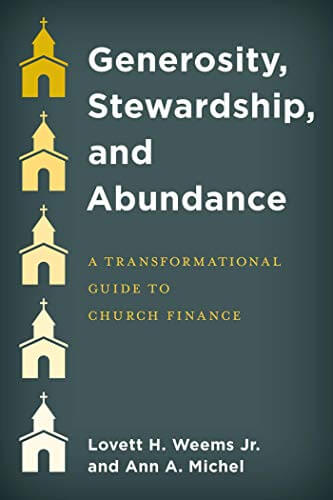Rick Reinhard says more and more congregations are looking to rent, sell, or redevelop unused buildings and property. But before launching into the real estate market, churches should take time to understand the value of their property, the key players in their community, and where decision-making authority lies in their congregation or denomination.
A struggling house of worship may own 10,000 (or 100,000) square feet of property at a key location and use only a portion of it a couple days a week. This was acceptable in flusher times, but not today when faith communities need to be resourceful to get by. Some houses of worship decide to rent out portions of their properties to other congregations or human services organizations. Others sell their real estate and downsize, merge, or liquidate. Still others enter into joint ventures with for-profit or not-for-profit development companies or try to become real estate developers themselves.
Many congregations, denominations, and religions have successfully repurposed or redeveloped houses of worship throughout North America. No two have been exactly alike. What works in a hot real estate market may not work in a cool one. What works with a robust young congregation may not work with a struggling elderly one. What works in a progressive community may not work in a conservative one. And if a solution sounds too good to be true, it probably is.
The real estate landscape for most houses of worship is uncharted territory. How should a faith community proceed in making a once-in-a-lifetime decision? It’s important to first know where you stand and who the key players are.
1. Get to know everything about your property.
Pastors and congregations know shockingly little about their own real estate. They document even less. A Zillow webpage tells more about the average house for sale than congregants know about their houses of worship.
- Size. How many square feet and how much acreage? How many rooms — kitchen, bathrooms, basement? Entrances and exits? Elevators? Handicapped accessibility? When built and renovated? Utilities and costs? Major repairs or replacement needed? In or near a natural or man-made disaster zone?
- Value. Consider paying for an appraisal from a professional who understands the local market. There are three approaches of professional appraisal: comparison (what similar property would sell for), income (how much in revenues the property produces), and replacement cost (what it would cost to rebuild). It is good to estimate all three.
- Restrictions. How is the property zoned and are there any historical protections? On the one hand, restrictions may help preserve the value of the property. On the other hand, they may make difficult or impossible some possible uses, e.g., affordable housing.
- Tenant agreements. Are there current rental agreements with other congregations, childcare centers, and health care clinics?
- Deeds and any restrictions, including reversionary clauses. It is not unheard of that the land donated for a house of worship is restricted to always be used for a church; once it is to be used for another purpose, the land reverts to the former owner. A New Jersey church found out the hard way. After its parent organization drafted redevelopment plans, it was alerted to a long-lost reversionary clause and was forced to return the property to the party that had donated the land more than 100 years before. That party later sold the property for $1.5 million.
2. Get to know everything about your community.
- Key governmental players. Does the municipality have a strong-mayor or council-manager form of government? Does the house of worship location have a district councilmember? Is there a planning commission? Historic district commission? Neighborhood association? Who occupies the critical seats? Does your house of worship have relationships with them?
- Real estate market. What is the real estate market like in your region? Your community? Your neighborhood? For housing, office, commercial? Is another house of worship looking for space like yours — either to own or to share?
- Developers. Who are the real estate developers who do projects like one you may contemplate? Who are the realtors who know the most about your scale of project? Is there a realtor in the region who specializes in houses of worship?
3. Get to know everything about the management of your religion or denomination.
Some religions or denominations are “top-down” (decisions made at headquarters). Others are “bottom-up” (decisions made by congregations). Others are a combination. Some vest decision-making authority in clergy, some in laity. Some require votes of congregations and/or of a larger group. Some religions or denominations specify what real estate proceeds can and cannot be used for.
After a 30-year career in economic development and real estate and five years in the faith community, my number one takeaway is how little each world knows about the other. Up to 100,000 houses of worship will be closing over the next several years, so the scale of house-of-worship redevelopment will be several times anything we have experienced before. Churches and their parent organizations need to be ready.
More details can be found in Rick Reinhard’s article “Redeveloping Houses of Worship” in Public Management Magazine, April 2021, available at https://icma.org/articles/pm-magazine/redeveloping-houses-worship.
Related Resources
- 7 Dos and Don’ts When Considering the Redevelopment of Church Property by Rick Reinhard
- Reimagining Church Buildings by Dave Harder
- Leveraging Church Property Can Sustain Your Mission by Lovett H. Weems Jr. and Ann A. Michel
- “Leveraging Your Church’s Assets,” a Leading Ideas Talks podcast episode featuring Jacqueline Jones-Smith







